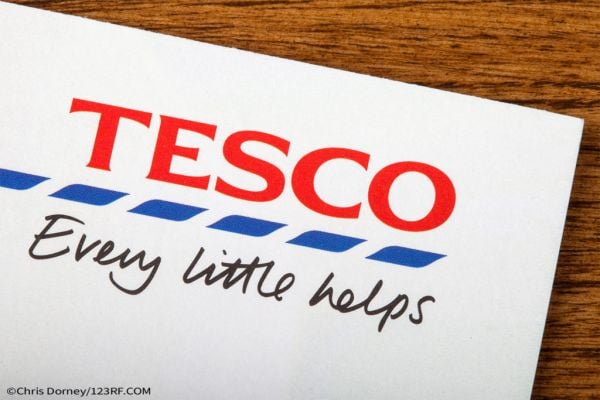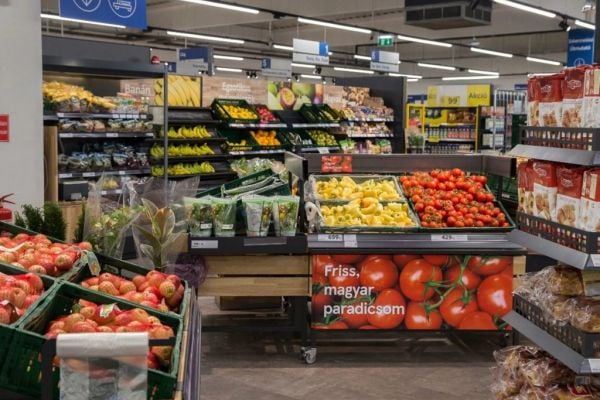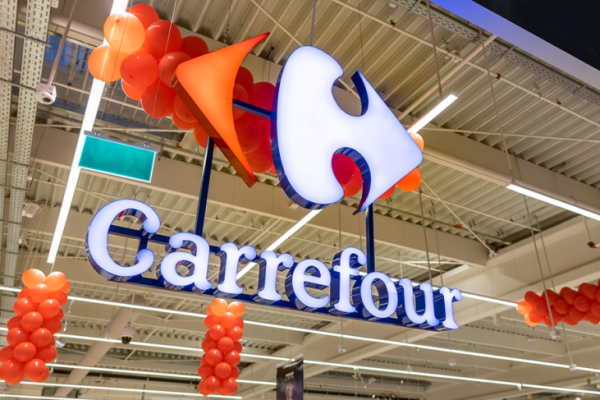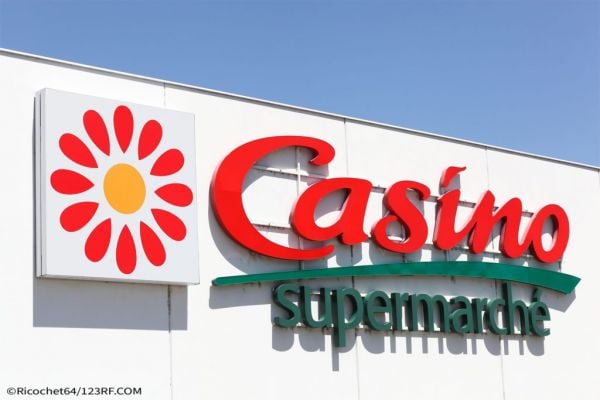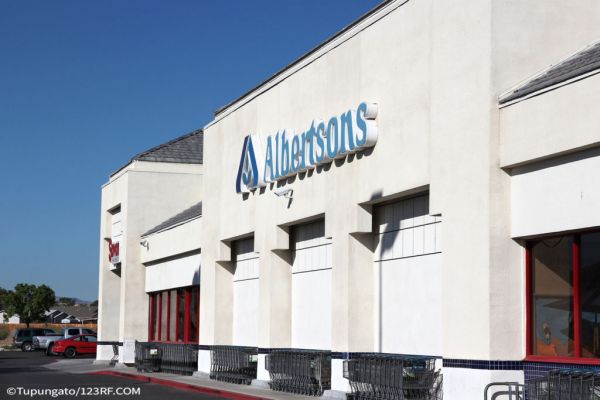Tesco has reported first-quarter sales of £14.83 billion (€17.34 billion), with its core UK & ROI business seeing a 8.8% increase in like-for-like sales in the period.
Announcing its results this morning, Tesco chief executive Ken Murphy and CFO Imran Nawaz took part in a media conference call with journalists. Here are five takeaways from both the call and the results announcement.
1. Inflation appears to be easing
Tesco CEO Murphy believes that the UK market is now "past peak inflation", however there are some aspects that remain "stubbornly high".
Tesco said that it 'led the market' in terms of cutting prices on essential items to support hard-pressed customers – pasta, cooking oil, bread, butter and milk are among the categories in which prices have dropped – and Murphy indicated that further price drops may be on the horizon, given the "positive' early indicators regarding inflation levels.
"I think that's a good indicator that we are hopefully going to start to see prices continue to moderate through the rest of the year," he said. "That's something that we'll stay very close to."
2. Online sales have rebounded after a post-pandemic dip
While online sales saw a slump across the board after the highs of the pandemic, Tesco has seen an e-commerce recovery in recent months, with online sales rising 8.2% in the first quarter. This means the group's share of the online grocery market in the UK now stands at 37.5%, a 75-basis-point gain.
Commenting, Murphy noted that Tesco's online sales went back into positive territory last November, and "have stayed consistently positive year-on-year since then".
3. Its 'Finest' range is helping attract shoppers from other retailers
Tesco is investing more and more in its premium private-label Tesco Finest proposition – launching more than 100 new SKUs in the first quarter – and this has helped the retailer attract shoppers from other grocers. According to its trading statement, this is the ninth consecutive period in which the retailer has gained customers from 'premium' retailers, it said.
According to Murphy, the growth in Finest – up 14.9% in the quarter – has also been led by shoppers choosing to "dine in" rather than going out, and "looking to treat themselves" at the weekend or on special occasions.
"I think that through the pandemic and the increase in our online business and penetration, a lot of people have been pleasantly surprised about the experience of our Finest range," he said. "We have also invested a huge amount over the last two years in upgrading and improving our Finest proposition."
4. Central Europe is challenging, particularly Hungary
Tesco's Central Europe business reported a 1.1% increase in sales in the first quarter, which was led by high inflation, cost-of-living pressures, and the 'scaling back' of a consumer stimulus programme in Hungary, it noted.
While the grocer doesn't publish breakout figures for each of its European markets, Hungary, which boasts the highest inflation in Europe as well as introducing price caps on certain items, is the most challenging, Murphy noted in the call.
"It's definitely been a tough few months in Hungary," he said. "Last year the government injected quite a bit of stimulus into the market and that that kind of sparked quite a high spending spree in terms of customer spend. And that kind of stimulus doesn't exist this year. So, we're lapping pretty big numbers from last year, and that's been a material factor in in the sales performance."
Elsewhere, Slovakia is "trading well", he added, while Czechia is "more challenging" but also "reasonably resilient".
Central Europe sales were up 10.4% on a like-for-like basis in its 2022/23 financial year.
5. Those blaming supermarkets for high inflation don't understand the full picture
Recent months have seen critics – some in government, others in financial circles – hit out at the supermarket sector for keeping prices high.
When asked on the media call whether he believed the Bank of England was 'being unfair' when it called out supermarkets for not moving fast enough to address inflation, Murphy commented "Yes, I do. If you look at what we've done as an industry, we have worked really hard on efficiency.
"We've had the best efficiency program for the last two years, yet our operating margins are falling despite strong top-line sales growth. That can only be attributed to the fact that we are investing heavily in value."
He noted that commodity prices in some areas have come down, while others – such as potatoes and rice – remain high, influenced in some cases by weather-related crop yields or global demand.
"The unpredictability of these factors makes it tougher to determine when and by how much prices will come down," he added.
© 2023 European Supermarket Magazine – your source for the latest retail news. Article by Stephen Wynne-Jones. Click subscribe to sign up to ESM: European Supermarket Magazine.
